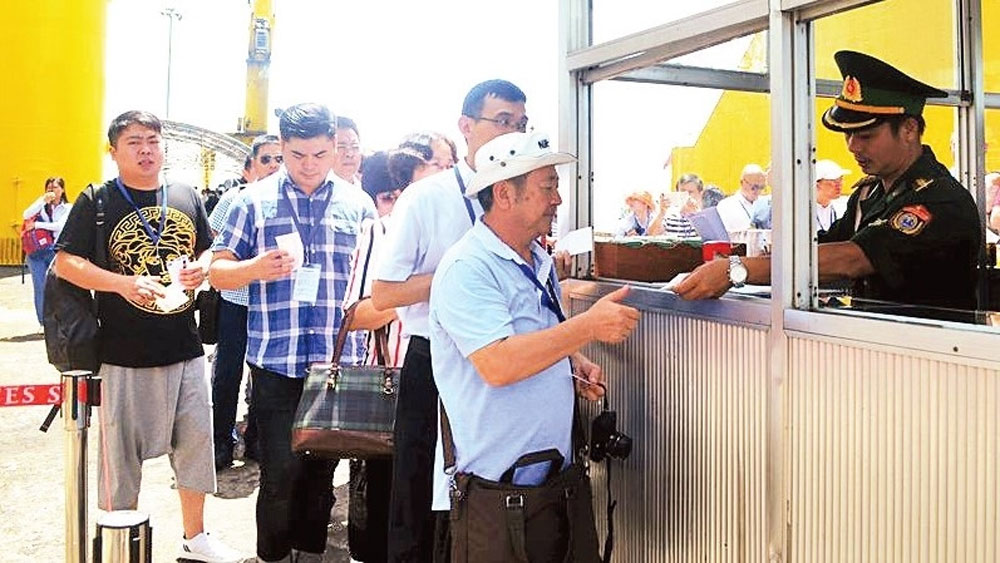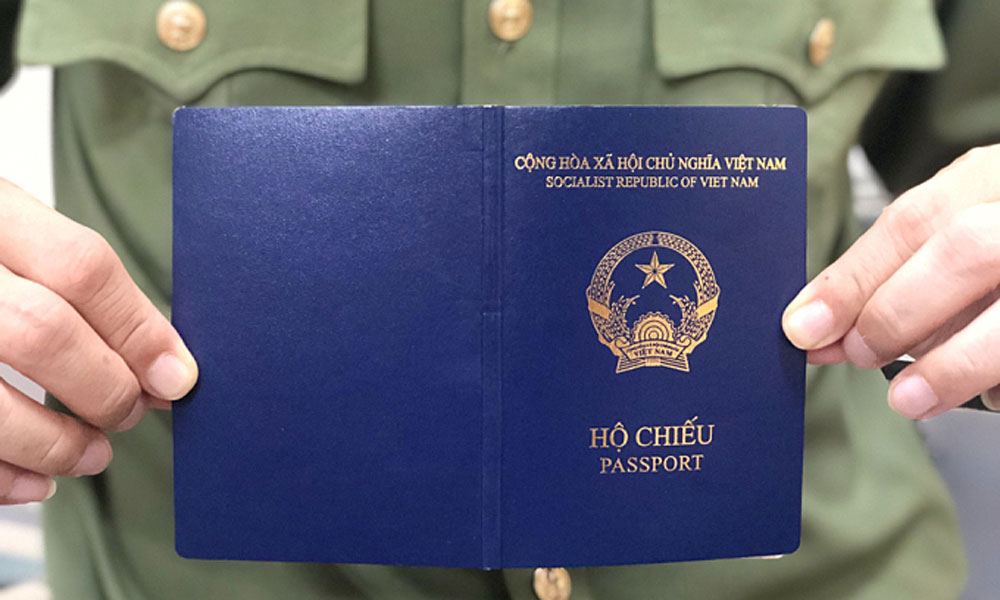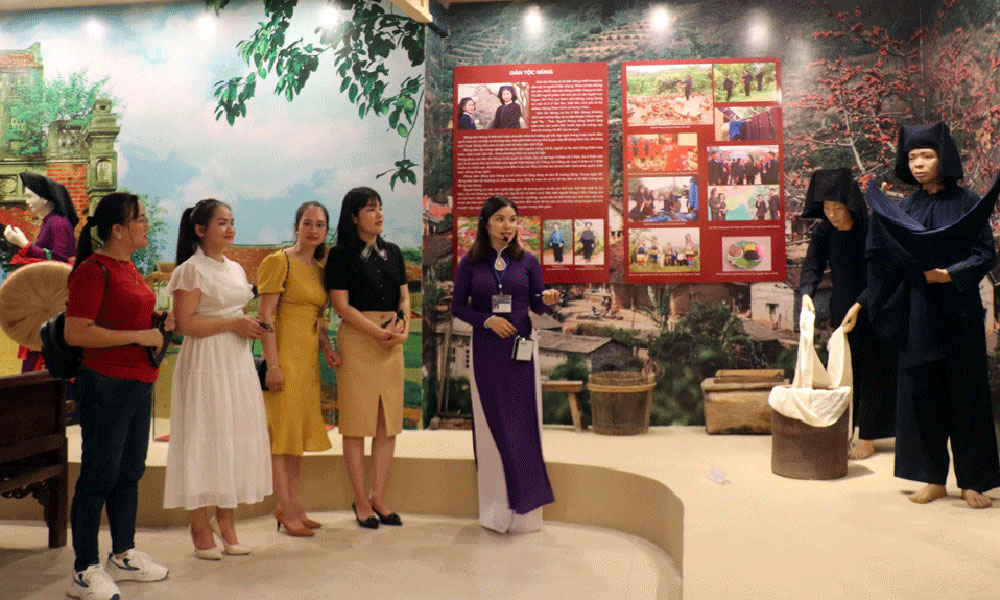Measures needed to facilitate visa issuance for foreigners
However, compared to other countries in the region, Vietnam should continue improve visa issuance to improve the competitiveness of the tourism sector as well as attract more foreign visitors.
Vietnam ranks 63rd among 140 countries and territories in the Travel & Tourism Competitiveness Index (TTCI) 2019 released by the World Economic Forum (WEF), jumping up four places compared to the previous ranking in 2017. Accordingly, the visa requirements index saw the highest increase, from 116th position among 136 to 53rd among 140.
 |
|
Foreign visitors completing entry procedures at Tien Sa Port in Da Nang City. |
The improvement of the ranking was the results of the implementation of many measures to increase the flexibility of visa-related policies over recent times, such as the expansion of visa exemption to over 80 countries, unilateral visa exemption for some countries and visa-free extension for citizens of five Western European countries. However, Vietnam’s visa requirement index is in fact still much lower than other countries in the ASEAN bloc, such as Singapore (50th), the Philippines (47th), Thailand (29th), Laos (26th) and Malaysia (18th). The problem showed that the openness of visa policies has not significantly improved the competitiveness for Vietnamese tourism.
In addition, the tourism sector is worried that by December 31, 2019, the visa exemption period for citizens from Russia, Japan, the Republic of Korea (RoK), Denmark, Norway, Finland and Sweden, will expire. According to a statistic, the RoK and Japan are the second and third largest markets, respectively, for high numbers of visitors to Vietnam, following China.
Meanwhile, there has been sustainable growth in the number of tourists from Northern European countries, who have had high spending and long stays. Therefore, tourism experts said that it is necessary to continue to extend visa exemption for tourists from these markets. In addition, Vietnam should consider the addition of Australia, New Zealand, Canada, the Netherlands, Switzerland and Belgium, into the list of countries enjoying visa exemption, because visitors from the nations are willing to spend high and are aware of environmental protection.
The tourism sector appreciated the drafting committee of the draft law amending and supplementing a number of articles of the Law on Entry, Exit, Transit and Residence of Foreigners in Vietnam for their proposals to abolish regulations for foreigners who enter Vietnam as unilateral visa-exempted that the entry date must be at least 30 days from the previous exit. The change will not only encourage international visitors to return to Vietnam within the same journey to Southeast Asia but also help travel agencies to study and develop long-time intra-regional tours, making Vietnam into a transit hub for international visitors.
However, according to tourism experts, some articles of the Law should be adjusted to create a more open visa-related mechanisms. Specifically, it is essential to extend of the period of stay from 15 to 30 days for citizens from countries enjoying unilateral visa exemption in Vietnam. Head of the Secretariat of the Vietnam Tourism Advisory Board (TAB), Hoang Nhan Chinh said that in reality, with long and focused holidays, tourists from distant markets such as Europe often want to travel to Vietnam for over 15 days. Therefore, if the law only allows visa exemption for those staying in the country for 15 days or less, it will be difficult for the tourism sector to attract visitors with high spending.
Regarding the concerns that international visitors can utilise long-term visa exemption to stay in Vietnam for working or other purposes illegally, Chinh noted that despite the visa-free policy, relevant agencies still have the right to refuse citizens from any country if deemed a risk. Moreover, even if the extension of visa exemption to 30 days is approved, Vietnam can decide the specific days for each country.
In addition, it is crucial to improve the visa-related information and communication system in a centralised, uniform and complete manner. There are official websites providing information of immigration: https://immigration.gov.vn and https://xuatnhapcanh.gov.vn. However, the access rate to the websites is too low. The experts said that an official electronic information page should be developed, with appropriate domain names and languages, to provide international visitors with full information on the e-visa and visa-free policies of the Vietnamese Government. Vietnamese Embassies in foreign countries need to use official websites to update related information.
Vietnam is implementing visa application at border gates. According to many experts, the visa application process in the country has not been in line with international practices, so the Vietnamese tourism sector’s competitiveness has not improved. In several countries, after entry, visitors only need to complete the visa application at the port of entry and get the visa. However, in Vietnam, visitors have to apply for prior approval and get their visa at the border gates. The TAB’s experts proposed the removal of the requirement of an approval letter for granting visas at the airport to create a consensus with other countries around the world.
In addition to proposals on visa exemption policy and time, measures to improve the access rate, the consistency and transparency of information, as well as the change to the visa application process, are immediate solutions that relevant agencies should implement right away in order to simplify visa policy, contributing to the improvement of Vietnam tourism’s competitiveness.
Source Nhan Dan online
 Bắc giang
Bắc giang











Reader's comments (0)